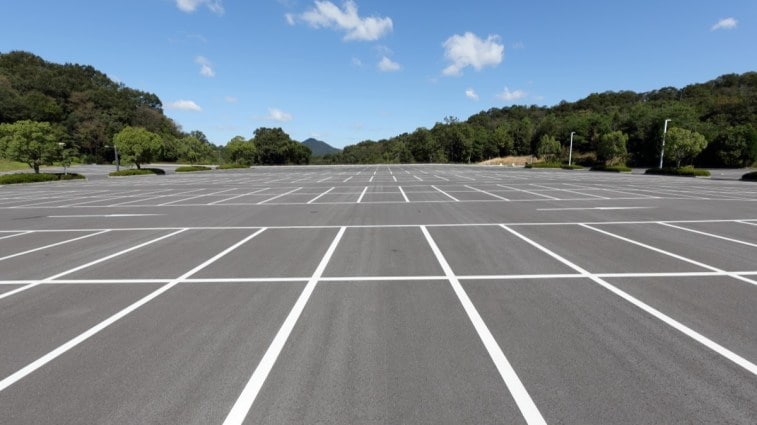 Electrical automobiles are producing all of the headlines, however good luck discovering one to purchase. A latest survey discovered that two-thirds of automobile sellers haven’t any electrical automobiles (EVs) or plug-in hybrids (PHEVs) to promote. Some can’t come up with in style fashions to promote, whereas 45% stated they refuse to promote them.
Electrical automobiles are producing all of the headlines, however good luck discovering one to purchase. A latest survey discovered that two-thirds of automobile sellers haven’t any electrical automobiles (EVs) or plug-in hybrids (PHEVs) to promote. Some can’t come up with in style fashions to promote, whereas 45% stated they refuse to promote them.
The survey comes from the Sierra Membership and has vital limitations.
It surveyed simply 801 dealerships (America has almost 17,000, in keeping with the Nationwide Vehicle Sellers Affiliation). It chosen them by way of the web site Auto Purchase Promote Sellers, which has listings for a restricted subset of dealerships. However researchers aimed for a consultant pattern of sellers and estimated that their research has only a 3.5% margin of error.
Restricted Provide A part of the Drawback
Forty-four % of sellers who didn’t have an EV or PHEV on the lot advised the researchers “they might supply an EV on the market if they might get one.”
Provides of most automobiles have been restricted in 2023 as a result of a worldwide microchip scarcity that’s starting to ease.
However provides of electrical automobiles have been even thinner. Automakers are simply starting to scale up EV manufacturing. Ford, for example, is anticipated to start accepting new orders for its F-150 Lightning pickup this week after scaling up manufacturing sufficient to clear a years-long backlog.
Simply as automakers have been securing international provide chains to supply extra EVs, Congress threw them a curveball. The Inflation Discount Act handed final summer time supplies tax incentives just for EVs in-built North America with battery minerals mined within the U.S. or sure commerce companions.
Associated: A Checklist of Automobiles That Qualify for New EV Tax Credit
Automakers have begun transferring EV manufacturing to the U.S. because of this, however shifting international battery provide chains to exclude Chinese language minerals is taking time. When the IRS enacted battery mineral limits earlier this 12 months, it excluded many EVs from the tax breaks. Over time, we count on them to qualify once more as automakers construct new provide networks.
Seller Reluctance Generally a Issue
Nonetheless, 45% of sellers contacted advised researchers they wouldn’t promote an EV if they might.
The survey didn’t discover their causes. Some sellers could also be reluctant as a result of EVs would possibly disrupt the normal dealership enterprise mannequin. In idea, EVs have fewer transferring elements and may want much less upkeep — although research thus far haven’t borne that out.
Associated: America Splits Into Thirds on Electrical Automobiles
A lot of the reluctance, although, might have a a lot easier clarification. Charging infrastructure stays poor, making EVs impractical for a lot of throughout giant stretches of the nation. Researchers discovered dealerships in giant Western states with low inhabitants density least prone to have an EV or PHEV in inventory. These within the Southeast, with better inhabitants density, have been most definitely to have one accessible on the market.
Large Variations Between Automakers
Every automaker has its personal method to electrification. That’s obvious in a census of electrified automobiles on the market. Ninety % of Mercedes-Benz sellers surveyed had not less than one in inventory. Greater than 75% of BMW sellers had one as properly.
Excluding EV-only automakers like Tesla and Rivian, no different automaker scored over 50%. Honda and Toyota — late to the EV sport — completed final. Simply 11% of Honda sellers and 15% of Toyota sellers had one thing to supply.
Direct Gross sales Had Little Impression
Not each automaker, nevertheless, sells automobiles by way of unbiased dealerships. Some states permit automakers to function their very own shops. Others forbid the apply, requiring automakers to promote by way of third-party dealerships.
Newer, EV-only automakers like Tesla and Lucid are likely to function their very own shops the place allowed and promote automobiles solely on-line in states that may require them to work with unbiased sellers.
The Sierra Membership discovered that the presence of automaker-owned EV shops made no actual distinction in whether or not sellers saved EVs in inventory. However permitting direct gross sales makes an enormous distinction in what number of EVs get bought. “Direct gross sales accounts for under 23 states, however bought 65 % of the nation’s EVs, whereas non-direct gross sales accounts for 28 states (together with DC), however solely bought 35 % of the nation’s EVs,” they wrote.
A lot of This Drawback Could Remedy Itself
EV gross sales are rising shortly.
Simply 3.2% of latest automobiles bought in 2021 have been EVs. In 2022, the identical determine grew to five.8% — greater than 800,000 new electrical automobiles on the highway. Kelley Blue E-book mum or dad Cox Automotive tasks that EV gross sales will cross the 1 million mark this 12 months with loads of room to spare.
Dealerships are companies, and companies inevitably make selections that make them cash. Many will develop EV gross sales methods as demand will increase.
Researchers discovered poor gross sales techniques at some dealerships. These companies will probably get higher at promoting electrical automobiles as extra prospects present up on the lookout for them.
Others are reluctant to promote EVs as a result of there’s little demand for them of their group. Infrastructure is holding again EV adoption. However, as charging networks develop and get simpler to navigate, that can probably change.
It’s regular for advocates just like the Sierra Membership to push for sooner adoption. However we count on many of those issues to ease because the automotive trade and America’s vitality infrastructure adapt to the demand for brand new EVs.